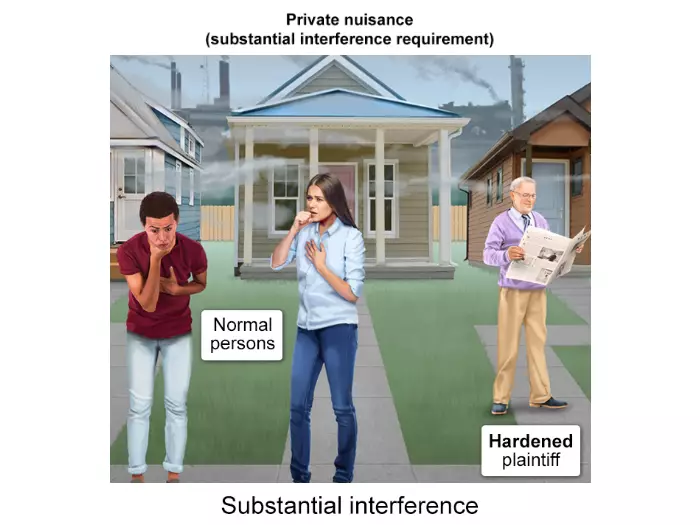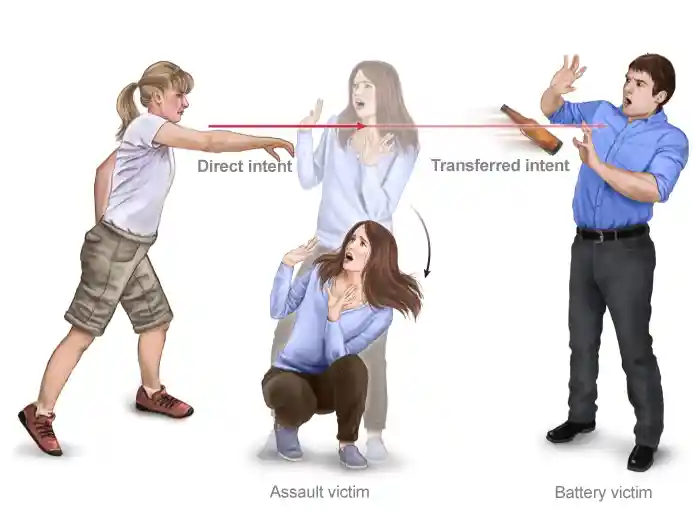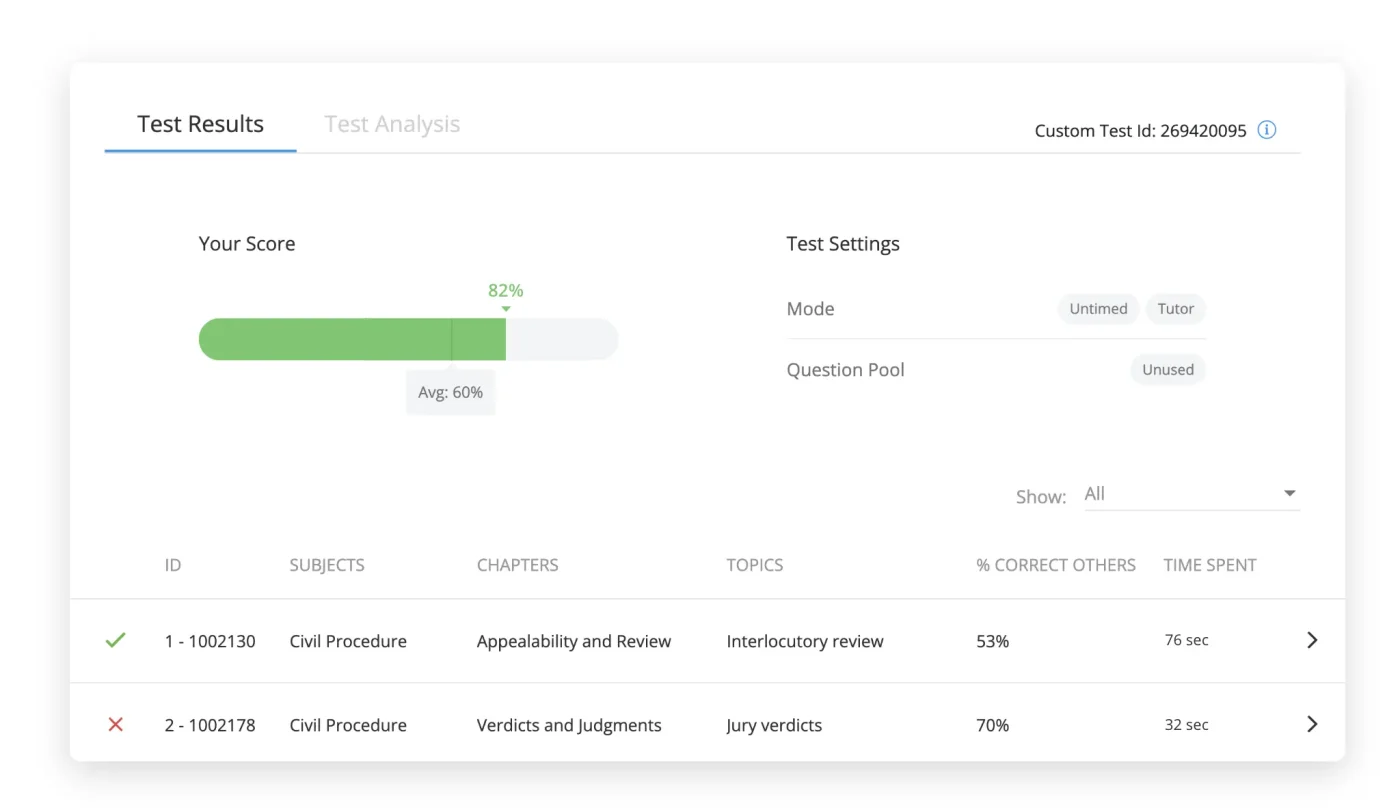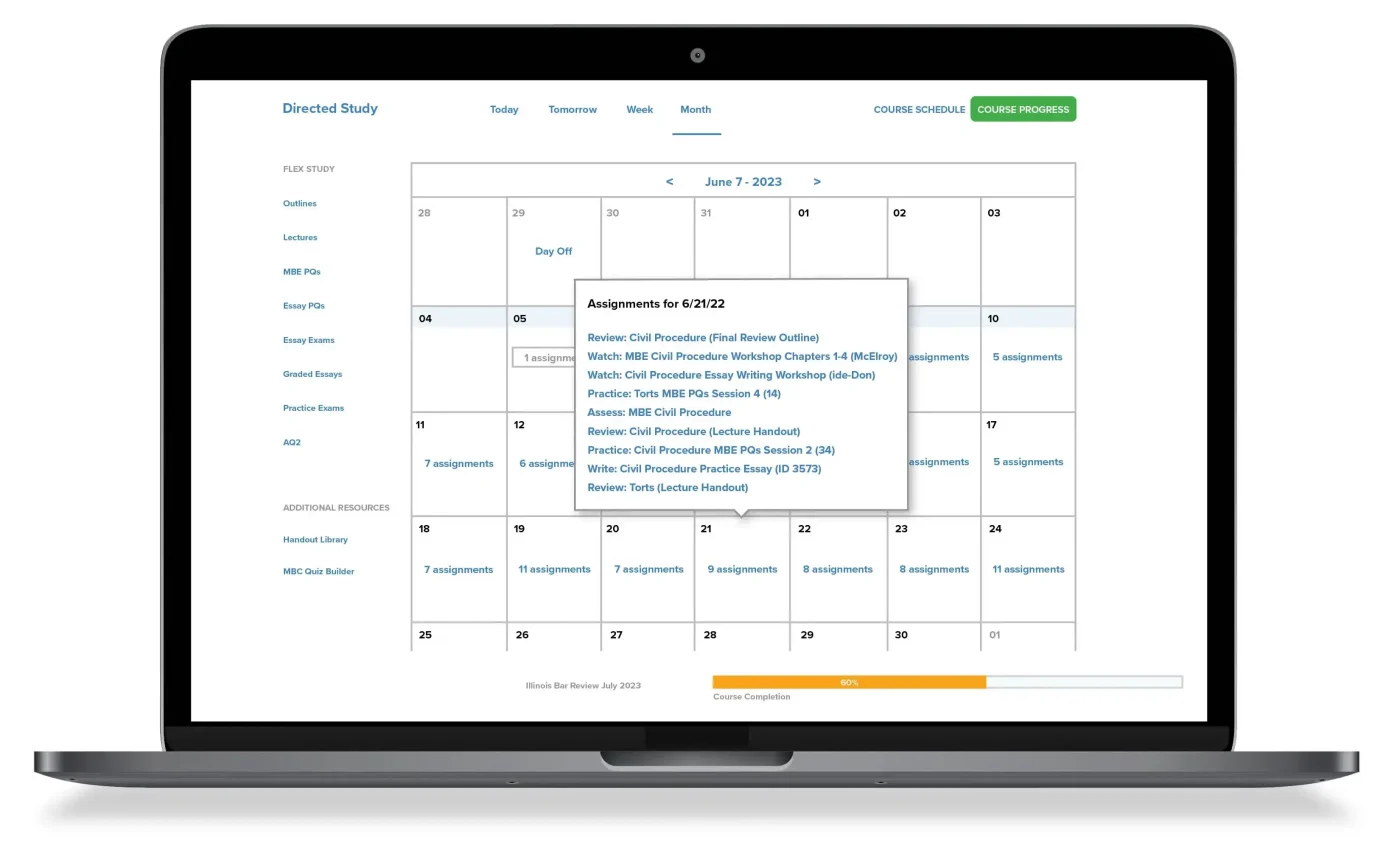Bar Exam Study Guide
Study Plan, Tips and Preparation
Passing the bar exam is a prerequisite for admission to the bar in every US state except for Wisconsin. State supreme courts typically administer bar exams, and nearly all states have implemented exam components developed by the National Conference of Bar Examiners (NCBE®).
Whether your jurisdiction has adopted the UBE, components developed by the NCBE, or is unique, this bar exam study guide will provide you with tested study tips, quality study materials, and component-specific advice.
Understand the Bar Exam Format, Weights, and Subjects
The UBE is divided into three components administered over two six-hour sessions. On day one, examinees have three hours to complete 2 MPT tasks and an additional three hours to answer six MEE questions in the afternoon. Day two is dedicated solely to the MBE. Examinees will answer 200 multiple-choice questions, split evenly between two three-hour sessions.
The weight of each component is not distributed evenly. For example, the MBE is worth half your bar exam score. Weights for each component are as follows:
While most jurisdictions use the UBE format, some require that examinees take an additional jurisdiction-specific law component. Jurisdictions that have not adopted the UBE may use its components or variations of them. Check if your jurisdiction is part of the UBE adopted jurisdictions, or check your state-specific bar examiner website.
MBE Format and Subjects
The MBE is a 200 multiple-choice question UBE component administered over two three-hour sessions on the second day of the general bar exam. The NCBE scores only 175 questions and uses the remaining 25 as pilot questions for future exams.
MBE questions are designed to test an examinee's ability to pair a fundamental understanding of seven core subjects (see below) with an analysis of a given question's fact pattern.
MEE Format and Subjects
The MEE consists of six essay questions which examinees have three hours to answer. The NCBE uses rules of law and legal concepts from a pool of twelve subjects (see below). You may encounter some subjects tested together with others, but you will not be tested on all twelve.
There is no way to know which subjects will be tested. However, you can check out our MEE subjects guide to see which subjects are most likely to appear and a summary of each topic.
- Business Associations
- Civil Procedure
- Conflict of Laws
- Constitutional Law
- Contracts and Sales
- Criminal Law and Procedure
- Evidence
- Family Law
- Real Property
- Torts
- Trusts and Estates
- Article 9 (secured transactions) of the Uniform Commercial Code

Your dedicated Themis attorney will personally grade your essays and provide feedback.
MPT Format and Topics
The MPT consists of two tasks set in a fictitious jurisdiction called Franklin. The rules of law you've been studying do not apply in Franklin. Instead, MPT tasks simulate real assignments that newly licensed lawyers will confront. You will be provided with a library of Franklin's laws, a file containing facts of the case, and an assignment from a supervisor, which you'll have 90 minutes to complete.
How to Study for the Bar Exam?
The difference between superior and subpar bar exam results is determined by how you study. Below, we've collected the most poignant, research-backed, and well-tested methods for increasing your score.
Create a separate study plan for the MBE, MEE, and MPT
Each component of the UBE tests different competencies. While there is some crossover in how you should study for each, there are also critical differences. Fortunately, we have in-depth, component-specific study guides:
Concentrate on the topics that have been heavily tested
You must gain a foundational, balanced, and broad understanding of the law. However, some topics are tested much more frequently than others. To be clear, you should still study all subjects because they may appear on your exam even if they are rare. However, prioritize what you are more likely to confront if time is short. For subject frequencies, check our component-specific study guides linked above.
Practice with exam-like questions
Practicing with questions that replicate those found on the bar exam in terms of difficulty and format is the most effective way to prepare for every bar exam component. By exposing yourself to exam-like questions, you will understand exactly what to expect and better understand what weaknesses you need to work on. The Themis + UWorld Bar Review Bundle includes exam-like questions for each bar component, including:
- 4,000+ MBE-style questions, including NCBE-licensed questions
- 100+ MEE questions from bar exams
- 22 MPT questions from past bar exams
Complete a full-length simulated exam
Practicing with exam-like questions is essential, but replicating the full-length exam under time constraints is the ultimate way to build confidence and preparedness. You need to understand what it's like to experience 12 hours of testing over two days with very few breaks.
The Themis + UWorld Bar Review Bundle contains a complete simulated exam scheduled directly into your study plan. Additionally, you'll get access to a complete 200-question simulated MBE assessment exam.
Memorize blackletter law
Blackletter laws consist of well-established and undisputed legal rules that form the foundations of legal principles. Memorizing and understanding them will give you a massive advantage on the MEE and MBE.
Improve your writing skills
You might understand fundamental legal concepts and know blackletter law like the back of your hand, but if you can't communicate effectively through writing, your MEE and MPT scores will suffer. You can improve your writing skills by following the advice in the following articles:
- Legal Writing Skills: Enough with the Fluff
- Legal Writing Skills: Pass on Passive Voice
- Legal Writing Skills: Conquer the Comma!
- Legal Writing Skills: Nix the Legalese
Get substantive feedback
It's not enough to hone your writing skills without expert feedback. Our Themis + UWorld Bar Review Bundle includes essay skills workshops that teach techniques for each MEE subject, tools for improving organizational and writing skills, and unlimited essay grading from legal professionals.
Use memorization techniques
How does one begin memorizing black letter laws? First, don't wait to start practicing until you have memorized everything. Practice will not only help you retain material but also understand where your weaknesses lie.
Our product contains research-back materials, including illustrations and charts, that will help you retain important information.
Use spaced-repetition flashcards
Spaced-repetition flashcards are scientifically proven to help students retain complex information more efficiently. You are shown material based on your level of understanding. More complex material is shown at shorter intervals, and easier material at longer intervals.
Our product empowers you to create unlimited, customizable flashcards. Seamlessly transfer expertly-written visual and written content from our source content to either side of your spaced-repetition flashcards. Create unique flashcards or pull from hundreds of pre-loaded flashcards written by legal experts.
Track and analyze your progress
Research has shown that tracking your progress improves exam scores and performance. In a meta-analysis of 138 studies with almost 20,000 participants, the participants who were prompted to monitor their progress toward a goal had higher rates of success.
Our progress monitor allows you to easily track and analyze your progress so you can hone in on your weaknesses and turn them into strengths.
Make a study schedule/plan
Studying for, taking, and finally passing the bar exam is a massive undertaking that requires a serious commitment of time and effort. Many simply give up because they fail to break their overarching goal into smaller, more manageable mini-goals.
When you sign up for the Themis + UWorld Bar Review Bundle, you can access our adaptive study calendar. It will automatically adjust your study schedule based on a chosen start date.
Don't spend valuable time worrying about how to manage your time or tracking down what you've missed. We do that for you. Simply set your date and start studying.
Taking the Bar Exam
Below is a summary of some of the most important general tips and techniques to remember as you're taking the bar exam. However, it's important that you see our component-specific study guides, which enumerate exam-specific tips and techniques.
UWorld Study Methodology can Help you Pass the Bar Exam
All UWorld resources are built around an active learning methodology. Active learning is about increasing retention and understanding through mentally stimulating experiences that replicate real-life conditions.
To put this into perspective, just imagine trying to learn to play soccer solely through lectures and reading. It's obvious that the best way to learn to play soccer is to play. So, why don't we apply this to exam preparation?
Well, UWorld does. Research has shown that when multiple neural pathways are activated at the same time, new connections form more efficiently. In short, active learning is superior to passive learning when it comes to increasing retention and improving exam performance.
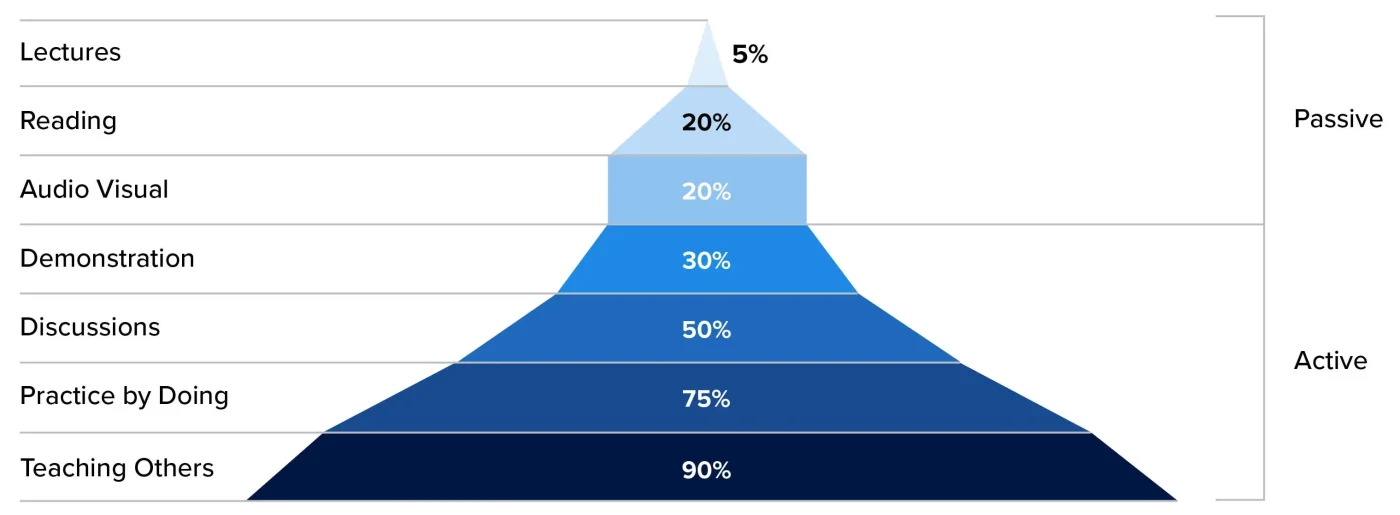
We cover every block on the learning pyramid but focus on the most fruitful. Practice with exam-like questions and self-assessments, get feedback from dedicated essay graders, and access unlimited, customizable practice tests.
Studying full-time
Students typically begin studying for the bar exam full-time about 8-10 weeks (2-3 months) before the date of their bar exam. This timeline gives you 40-50 hours a week to study for the MBE, MPT, MEE, or any state-specific components, depending on your jurisdiction.
Studying with a full-time job
You may not have the luxury of being able to study full-time. If externalities are creating time constraints for you, we recommend starting to study for the bar exam 4-6 months before your exams. This timeline gives you 16-25 hours a month to study for every component of the exam.

